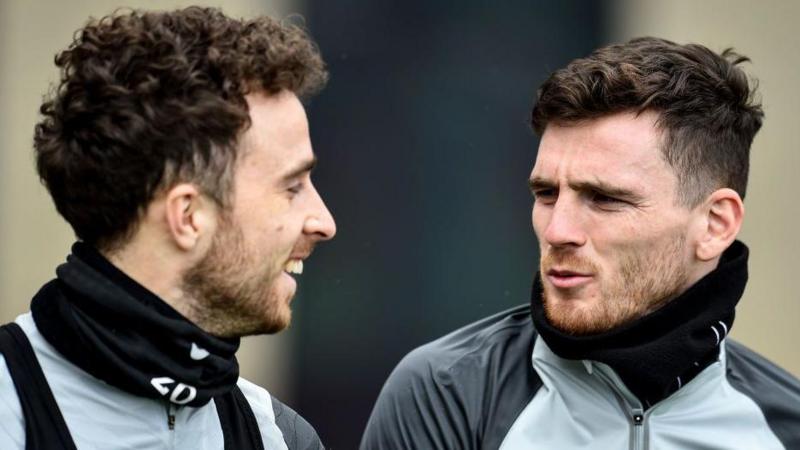Robertson Admits: Jota's Loss Is Irreparable, We're Shattered




The tragic passing of Diogo Jota has sent shockwaves through the football community, leaving his teammates at Liverpool and fans around the world in profound grief. As the Premier League club grapples with the heartache of losing one of its bright stars, veteran player Andy Robertson has stepped forward to address the emotional impact on the team and how they are coping with this immense loss.
Diogo Jota, who had been a pivotal part of Liverpool's attacking force since his move from Wolverhampton Wanderers in 2020, was admired not just for his prowess on the field but also for his spirited personality. His sudden death has, understandably, left a void in the team that goes beyond the physical absence of a key player.
In the wake of this tragedy, Robertson, known for his leadership both on and off the pitch, has highlighted the role of the senior players in the dressing room. These individuals are rallying together to support their teammates through this challenging time. The Scottish international suggests that while the Liverpool squad is a tight-knit community, the pain of Jota’s passing is something that they might "never get over." This honest admission underscores the depth of the bond within the team and the profound sense of loss they are experiencing.
Moreover, Robertson's comments shed light on the often underappreciated emotional and psychological support systems within professional sports teams. In times of personal tragedies, it's the strength of the community within the team that often provides the much-needed cushion against the harsh realities of life. The leaders in the Liverpool dressing room are tasked with a significant role – to buoy the spirit of their teammates, help navigate the stages of grief, and eventually find a pathway back to normalcy, albeit with the awareness that things may never truly be the same again.
This aspect of team dynamics is crucial, especially in sports where the pressure to perform is relentless and the public scrutiny intense. Players like Robertson, who step up to acknowledge and address these tough emotional journeys, are invaluable. They ensure that the focus isn't solely on physical fitness and tactical readiness but also on emotional resilience and mental health.
Liverpool's handling of this tragic situation also brings to the forefront the broader conversation about mental health in sports. It emphasizes the need for clubs to have robust mechanisms in place to support their players not just through physical injuries but emotional traumas as well. The football world often celebrates the physical toughness of players, but it is equally important to champion and support their emotional strength.
As the team tries to cope with the loss of Jota, their response and adaptation will likely mirror other instances where sports teams have had to deal with personal grief. History shows us countless times teams have turned personal tragedies into powerful narratives of resilience and unity. Whether it is through dedications, communal gatherings, or symbolic gestures during matches, football has a way of honoring its lost stars while providing the surviving players and fans a platform to express their solidarity and grief.
For Liverpool, the road ahead will be emotionally taxing as they navigate this season with heavy hearts. Fans can expect to see tributes and moments of remembrance for Jota as the club, and its supporters find ways to keep his memory alive. These actions, while small solaces, serve as critical steps in the healing process, providing comfort and reminding the football community of the strength found in unity.
In times like these, football transcends the boundaries of just a game. It becomes a reflection of life's many highs and lows, and how, in face of unimaginable loss, the human spirit strives to persevere, heal, and eventually, find a way forward.